Most people my age grew up with rock ‘n’ roll, or classical music, or even jazz. I grew up on James Bond soundtracks. Certain childhood preoccupations are withered by the passage of time — the coolest thing ever at seven years old is clunky and dated thirty years later. John Barry (1933-2011) does not date, maybe because he never really had a date to begin with. Standing above and outside his time, his work holds up because it belongs to something bigger than come-and-go music fads: the ideal of old-time Hollywood.
Barry grew up with Hollywood, in a sense. His father was a movie theater projectionist in York, and the youngster would while away his evenings at the local cinema, taking notes on what transpired before him on the silver screen. Like others from his generation (Jerry Goldsmith, John Williams, Ennio Morricone), he was influenced and inspired by his musical forefathers: Erich Korngold, Thomas Newman, Bernard Herrmann, Max Steiner. But while the golden age of composers took their cues from impressionistic classical music, Barry and his contemporaries had additional tricks to fall back on with the encroaching influence of jazz and rock. Barry’s hook was his expertise with big band jazz — the swinging, horns-blaring style epitomized by Stan Kenton — and in one of those lucky intersections of talent and opportunity, he was asked to rearrange a tune for a little movie called Dr. No.
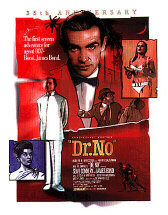 What’s come to be known as the “James Bond Theme” started life as a simple, almost dirgelike piece written by Monty Norman (who provided the remainder of the soundtrack for the film). It was ominous, quiet, and resembled nothing like what Sean Connery was creating on-screen: a character equal parts gentleman and panther, dangerous and brash and fun. The brilliance of Barry’s rearrangement of The Theme lies in its fusion of styles: the loping, lounge-like confidence of its opening lines, the driving rhythm provided by the surf guitar, the blasting trumpets as loud as any gunshot, the bridge kicking it up a notch with full big-band all-stops-out swing time, and the “Hard Day’s Night” clang of the final guitar chord. The early ’60s encapsulated in just over 100 seconds. Just as Bond films had cannily found their place with the Zeitgeist, so too had Barry’s music, and he would supply the soundtracks for another 11 Bond movies — no one else has come close.
What’s come to be known as the “James Bond Theme” started life as a simple, almost dirgelike piece written by Monty Norman (who provided the remainder of the soundtrack for the film). It was ominous, quiet, and resembled nothing like what Sean Connery was creating on-screen: a character equal parts gentleman and panther, dangerous and brash and fun. The brilliance of Barry’s rearrangement of The Theme lies in its fusion of styles: the loping, lounge-like confidence of its opening lines, the driving rhythm provided by the surf guitar, the blasting trumpets as loud as any gunshot, the bridge kicking it up a notch with full big-band all-stops-out swing time, and the “Hard Day’s Night” clang of the final guitar chord. The early ’60s encapsulated in just over 100 seconds. Just as Bond films had cannily found their place with the Zeitgeist, so too had Barry’s music, and he would supply the soundtracks for another 11 Bond movies — no one else has come close.
Barry, like Connery, would come to resent being pigeonholed as part of the Bond legend — on more than one occasion, he would dismiss the soundtracks for the Bonds as “million-dollar Mickey Mouse” music. Fortunately for us, there was a lot more to Barry than Mickey Mouse. He was a believer in old standards, torch songs and orchestral grandeur — the backbone of classic movie epics — and as his composing career took off, his talents deepened. Not content to regurgitate, he had a knack for giving each Bond picture a musical character of its own, even as it adhered to the rules he had set up himself. Compare From Russia With Love (1963), with its low-key tension and the thunderous tympanis of Barry’s alternate “007 Theme,” the perfect backdrop for a tight little Cold War thriller, to the raunchy trumpets and balls-out insouciance of Goldfinger (1964), the song and movie that catapulted Bond to stardom, inspiring hundreds of imitators in its wake. Then compare both to You Only Live Twice (1967), with the gorgeous intertwining melody of its theme song and the grandeur of “Space March,” which conjures feelings of awe and dread that the dodgy sci-fi effects of the film can’t hope to match.
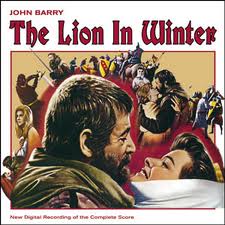 “Born Free,” the song that won Barry an Oscar, ushered him into his mature phase as a composer. Just as much a standard as any Sinatra tune or Tin Pan Alley classic, the melody soars, flirting with schmaltz and unafraid to announce itself as a big-as-outdoors presence. It would also foreshadow Barry’s output during his later years, all undulating bass lines, sweet violins, brass used as counterpoint rather than punctuation. But before all that came his creative peak in the late ’60s with three very different films: The Lion in Winter (1968), Midnight Cowboy (1969), and On Her Majesty’s Secret Service (1969).The Lion in Winter is the stateliest of all his soundtracks: full without a trace of bloat, its regal horns and choirs are sometimes elegaic, sometimes threatening. It’s impossible to think of Midnight Cowboy without Barry’s theme, with the sunshine of its strings and country-western gait playing off the melancholy of the descending melody line and harmonica. On Her Majesty’s Secret Service still stands as one of the most audacious Bond films, replete with tragic conclusion — and Barry rises to the challenge, turning in his most heartfelt score for the series, equally capable of nail-biting tension, lyrical passages, his most moving ballad (“We Have All the Time in the World,” covered by everyone from My Bloody Valentine to Iggy Pop), and the most driving and quintessential of his Bond themes, driven by fuzzbox guitars, propulsive bass, and plunger-heavy trumpets.
“Born Free,” the song that won Barry an Oscar, ushered him into his mature phase as a composer. Just as much a standard as any Sinatra tune or Tin Pan Alley classic, the melody soars, flirting with schmaltz and unafraid to announce itself as a big-as-outdoors presence. It would also foreshadow Barry’s output during his later years, all undulating bass lines, sweet violins, brass used as counterpoint rather than punctuation. But before all that came his creative peak in the late ’60s with three very different films: The Lion in Winter (1968), Midnight Cowboy (1969), and On Her Majesty’s Secret Service (1969).The Lion in Winter is the stateliest of all his soundtracks: full without a trace of bloat, its regal horns and choirs are sometimes elegaic, sometimes threatening. It’s impossible to think of Midnight Cowboy without Barry’s theme, with the sunshine of its strings and country-western gait playing off the melancholy of the descending melody line and harmonica. On Her Majesty’s Secret Service still stands as one of the most audacious Bond films, replete with tragic conclusion — and Barry rises to the challenge, turning in his most heartfelt score for the series, equally capable of nail-biting tension, lyrical passages, his most moving ballad (“We Have All the Time in the World,” covered by everyone from My Bloody Valentine to Iggy Pop), and the most driving and quintessential of his Bond themes, driven by fuzzbox guitars, propulsive bass, and plunger-heavy trumpets.
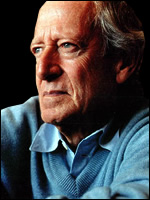 By the ’70s, the Zeitgiest hadn’t so much passed Barry by as much as he had decided to ignore it. Solemn, morose, and known for his stubbornness (he walked away from working on a Barbara Streisand movie when the Bawbawa deigned to make suggestions about his music), he avoided the prevailing trends of funk, disco and New Wave, moving towards a more symphonic sound. He remained capable of churning out those instantly memorable melodies, but a sameness was starting to creep into his work. When placed in a proper context, he could still soar: his theme for Bruce Lee’s Game of Death provided the only hint of class to the proceedings, and when a movie like Somewhere in Time or Robin and Marian matched his unabashed romanticism, the results could be stunning, even if the films themselves were less than great. When called on to support hopeless genre shlock like Star Crash (1979) or the 1976 remake of King Kong, his music could seem bloated, self-important, parodic.
By the ’70s, the Zeitgiest hadn’t so much passed Barry by as much as he had decided to ignore it. Solemn, morose, and known for his stubbornness (he walked away from working on a Barbara Streisand movie when the Bawbawa deigned to make suggestions about his music), he avoided the prevailing trends of funk, disco and New Wave, moving towards a more symphonic sound. He remained capable of churning out those instantly memorable melodies, but a sameness was starting to creep into his work. When placed in a proper context, he could still soar: his theme for Bruce Lee’s Game of Death provided the only hint of class to the proceedings, and when a movie like Somewhere in Time or Robin and Marian matched his unabashed romanticism, the results could be stunning, even if the films themselves were less than great. When called on to support hopeless genre shlock like Star Crash (1979) or the 1976 remake of King Kong, his music could seem bloated, self-important, parodic.
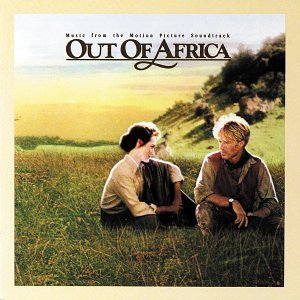 More often than not, though, Barry’s contributions seem to exist in their own space, divorced from the goings-on on screen, sometimes even running counter to the flow and action. High Road to China (1983), a pale Indiana Jones knockoff with Tom Selleck, falls short of being a lusty, fun update of those serial adventures Barry grew up with — but instead of directly recalling the rollicking scores of that time period, Barry goes the opposite direction, conjuring up the feel of those halcyon days with a wistful, nostalgic melody, the soundtrack of a much better film that has yet to be made. Likewise, his score for Body Heat doesn’t so much ape the music of classic noir as much as channel its sleaze. And then there’s The Black Hole (1978), an early Disney foray into “adult” moviemaking wherein the real stars of the show are the special effects and Barry’s ominous opening theme, which sounds like a sea shanty for the damned. In peak form, he could elevate a film: the two clear examples are Out of Africa and Dances with Wolves, both of which in hindsight are stolid old-fashioned Hollywood star vehicles, but Barry’s work for both give them a grace and heft they lack otherwise, and led to both films winning Best Picture Oscars. Would they have achieved the same success without the harmonic massage of Barry’s scores?
More often than not, though, Barry’s contributions seem to exist in their own space, divorced from the goings-on on screen, sometimes even running counter to the flow and action. High Road to China (1983), a pale Indiana Jones knockoff with Tom Selleck, falls short of being a lusty, fun update of those serial adventures Barry grew up with — but instead of directly recalling the rollicking scores of that time period, Barry goes the opposite direction, conjuring up the feel of those halcyon days with a wistful, nostalgic melody, the soundtrack of a much better film that has yet to be made. Likewise, his score for Body Heat doesn’t so much ape the music of classic noir as much as channel its sleaze. And then there’s The Black Hole (1978), an early Disney foray into “adult” moviemaking wherein the real stars of the show are the special effects and Barry’s ominous opening theme, which sounds like a sea shanty for the damned. In peak form, he could elevate a film: the two clear examples are Out of Africa and Dances with Wolves, both of which in hindsight are stolid old-fashioned Hollywood star vehicles, but Barry’s work for both give them a grace and heft they lack otherwise, and led to both films winning Best Picture Oscars. Would they have achieved the same success without the harmonic massage of Barry’s scores?
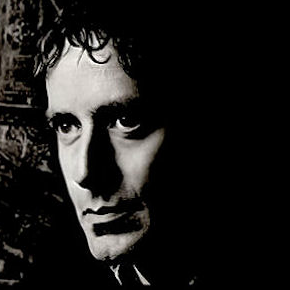 Inevitably, Barry outgrew Bond and lost interest in him — his final Bond scores are workmanlike, but with every interesting experiment (the wailing guitar underneath the action cues of A View to a Kill) there’s a regurgitated motif that he did such a good job of avoiding back in the ’60s. It’s ironic that he will probably be best remembered for those 100-plus seconds of the Bond theme, and yet perhaps appropriate — after all, he shares the same initials as her majesty’s favorite agent, and like 007 he has transcended time and place. Fortunately his Bond swan song, 1987’s The Living Daylights, is a fitting last testament: mixing tried-and-true tactics (wah-wah trumpets) with modern rhythm tracks (working with Paul O’Duffy, the producer behind Swing Out Sister), Barry emerges with a fully engaged score, capped off with a lush Chrissie Hynde ballad (“If There Was a Man“). Even if Bond had become formula and rote, the master had proved that he could still pull a trick or two from his sleeve.
Inevitably, Barry outgrew Bond and lost interest in him — his final Bond scores are workmanlike, but with every interesting experiment (the wailing guitar underneath the action cues of A View to a Kill) there’s a regurgitated motif that he did such a good job of avoiding back in the ’60s. It’s ironic that he will probably be best remembered for those 100-plus seconds of the Bond theme, and yet perhaps appropriate — after all, he shares the same initials as her majesty’s favorite agent, and like 007 he has transcended time and place. Fortunately his Bond swan song, 1987’s The Living Daylights, is a fitting last testament: mixing tried-and-true tactics (wah-wah trumpets) with modern rhythm tracks (working with Paul O’Duffy, the producer behind Swing Out Sister), Barry emerges with a fully engaged score, capped off with a lush Chrissie Hynde ballad (“If There Was a Man“). Even if Bond had become formula and rote, the master had proved that he could still pull a trick or two from his sleeve.
No surprise that Barry’s output trickled down to nothing by the ’90s, when movies (including Bond films) went into hyperkinetic mode, with dozens of cuts per minute and THX-shattering sound effects taking precedence over a cohesive underscore — and who needs a composer any more, with thousands of pop and rock hits to choose from for the soundtrack album? Faced with such a sea change, Barry did the only sensible thing and retreated to creating chamber orchestra albums, wistful little compositions to movies that may have existed in his mind back when he was a kid in York, watching those silent films unfurl on the screen. His final compilation album was called Moviola, and I tend to think of his compositions along those lines: as soulful reminders of bygone and never-existed eras that attract us because their dreaminess is so far from our humdrum reality.

